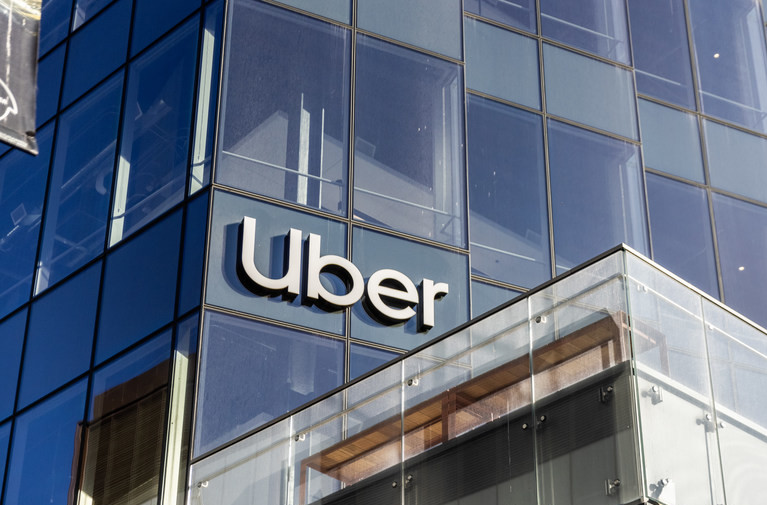DOJ Accuses Uber of Systematic Discrimination Against Disabled Riders in Major ADA Lawsuit
In a stinging rebuke to one of America’s ride-hailing giants, the U.S. Department of Justice (DOJ) has sued Uber Technologies Inc., alleging the company routinely denies service to passengers with disabilities. Filed on September 11, 2025, in federal court in San Francisco, the lawsuit claims Uber’s practices violate the Americans with Disabilities Act (ADA), leaving vulnerable riders stranded and humiliated.
The DOJ’s Core Allegations: A Pattern of Denials and Fees
The DOJ’s complaint paints a grim picture of Uber’s treatment of disabled users. It accuses the company and its drivers of “routinely” refusing rides to those with service animals, stowable wheelchairs, or other mobility aids. The suit details how these denials cause “significant economic, emotional, and physical harm,” including missed medical appointments and riders left waiting in bad weather.
Key claims include:
- Ride Cancellations: Drivers allegedly cancel trips upon learning a passenger needs accommodations. One example: A blind rider in Philadelphia faced four cancellations in 17 minutes because of his guide dog.
- Unlawful Surcharges: Uber imposes cleaning fees for service animal shedding and cancellation charges on denied riders—practices the DOJ calls discriminatory.
- Policy Failures: The company refuses “reasonable modifications,” like allowing front-seat access for easier wheelchair storage.
- Driver Misconduct: Some drivers insult riders or ask invasive questions about their disabilities.
The complaint draws from over a dozen real cases, including a 7-year-old Bronx amputee denied a ride home from a birthday party after a driver questioned his wheelchair. The DOJ seeks $125 million in damages for affected riders who filed complaints.
Background: Uber’s History with Disability Complaints
This isn’t Uber’s first brush with the DOJ on accessibility. In 2021, the agency sued over wait-time fees charged to disabled passengers needing extra time to board. That case settled in 2022 with Uber paying millions to over 65,000 riders and promising fee waivers for those certifying disabilities.
Uber, the largest U.S. ride-hailing service, relies heavily on independent drivers. But the ADA’s Title III requires public accommodations like Uber to ensure equal access. The DOJ argues Uber’s app design and driver training fall short, exacerbating biases against visible disabilities.
As ridesharing boomed post-pandemic, disabled Americans turned to Uber for essential trips—doctors, jobs, errands. Yet complaints surged, with advocacy groups reporting thousands of denials annually.
Uber’s Response: Zero-Tolerance Policy and Investments
Uber swiftly pushed back. In a statement, the company said it “fundamentally disagrees” with the allegations and maintains a “clear zero-tolerance policy for confirmed service denials.” It highlighted investments in accessibility, including a 24/7 service animal denial hotline launched in 2023 and driver training videos rolled out earlier this year.
“Riders who use guide dogs or other assistive devices deserve a safe, respectful, and welcoming experience on Uber—full stop,” Uber added, noting it deactivates violating drivers permanently. The company also directs riders to a dedicated complaint portal.
Critics, however, say these measures aren’t enough. Assistant Attorney General Harmeet K. Dhillon of the DOJ’s Civil Rights Division called out “repeated ride denials” for blind riders, urging stronger enforcement.
Public and Expert Reactions: Calls for Accountability
The lawsuit has sparked outrage among disability advocates. “For too long, blind riders have suffered repeated ride denials,” Dhillon said, emphasizing the ADA’s promise of equal access. Groups like the National Federation of the Blind praised the DOJ’s action as a “vital step” toward safer transport.
Legal experts see broader implications. “Rideshare companies like Uber are prohibited from denying riders with disabilities the same access,” said Northern District attorney Craig H. Missakian. On social media, #UberAccessibility trended, with users sharing stories of denials and demanding reforms.
Uber’s stock dipped slightly on the news, but analysts predict a settlement to avoid trial.
Implications for U.S. Riders and the Gig Economy
This case hits home for millions of disabled Americans—about 27% of adults—who depend on ridesharing for independence. Denials limit access to healthcare, work, and daily life, widening inequality in urban areas where public transit lags.
For the gig economy, it spotlights driver accountability. Uber’s model empowers independent contractors but raises questions about oversight. A win for the DOJ could force app changes, like mandatory accessibility training or AI-flagged bias alerts, rippling to Lyft and DoorDash.
Economically, the $125 million claim underscores rising stakes for tech firms. It ties into Biden-era pushes for ADA enforcement, potentially influencing 2026 regulations under the Trump administration.
What’s Next: Court Timeline and Potential Outcomes
The case heads to the U.S. District Court for the Northern District of California. Uber may seek dismissal, citing its policies. If it proceeds, discovery could reveal internal data on complaints.
A settlement seems likely, mirroring the 2022 deal. But a trial verdict could set ADA precedents for digital services. As proceedings unfold, Uber faces pressure to prove its commitments aren’t just words.
This lawsuit reminds us: Innovation must include everyone. For disabled riders, equal wheels aren’t a perk—they’re a right.
DOJ Uber lawsuit, Uber disability discrimination, ADA Uber violations, Uber service animal denials, wheelchair access Uber, Uber accessibility issues
